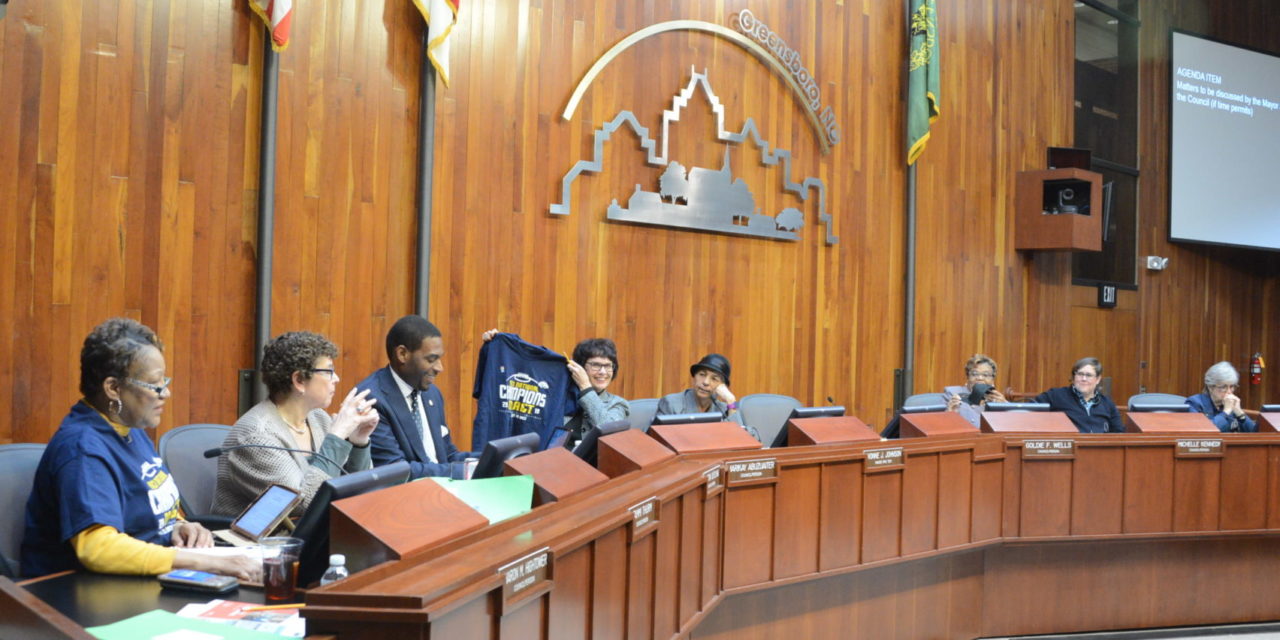The Greensboro City Council passed the three amendments to the construction budget for the Steven Tanger Center for the Performing Arts at the Tuesday, Jan. 7 meeting.
All three passed on 7-1 votes with Councilmember Sharon Hightower voting no and Mayor Nancy Vaughan absent.
The $3.1 million in budget amendments were necessary to account for new funds made available from sponsorships. One might expect the City Council to be excited about an additional $3.1 million in new private money coming into the project, but there was no celebration by the City Council.
It may seem like a no-brainer to accept funds essentially being donated to the project, but there was quite a bit of discussion on the three budget amendments.
The discussion was not about how the money would be spent, or why three separate budget amendments were necessary, but about the Minority and Women Business Enterprise (MWBE) percentage in the construction contract to build The Tanger which is being paid for with donations, parking fees, ticket fees and hotel-motel tax money. Nearly half the money for the $90 million project was raised in the form of donations.
Mayor Pro Tem Yvonne Johnson who was presiding over the meeting in the absence of Vaughan said, “This is not citizens’ tax money.”
City Manager David Parrish said, “Correct.”
Hightower then started a long tirade about the fact that although the MWBE percentage was 14 percent, of that only 2.3 percent went to black contractors.
She said, “This contract has never been through the MWBE office and black folks got nothing, zero.”
Greensboro Coliseum Director Matt Brown who is in charge of the construction project explained that the project went through the MWBE process that was in place at the time and that the City Council approved the contract. Brown said that they had started out at 3.1 percent MWBE contractors and got it up to 16 percent. He said, “It’s not minority but it is MWBE.”
Brown also noted that the city didn’t accept the low bid on the project, but accepted a bid $1.3 million higher because there was a greater opportunity for MWBE contractors.
Outling noted that the city was restrained by the law on what could be done and that the contractor had “met the good faith requirements.”
Cities are not legally allowed to have set asides for minority contractors. If a contractor makes a verified “good faith effort” to attract minority contractors and doesn’t meet the MWBE percentage goals set for the project, the city cannot legally reject the contract on those grounds.

